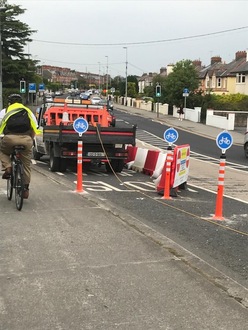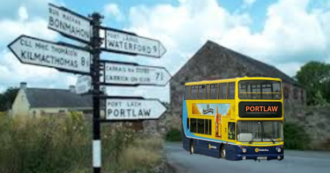- Featured
- Animal Rights
- Anti-racism
- Arts & Culture
- Children
- Climate
- Corporate accountability
- Crime
- Disability rights
- Economic
- Education
- Environment
- Food and Sustainable Production
- Gender Equality
- Governance and Transparency
- Health
- Housing
- LGBT Rights
- Mental health
- Northern Ireland
- Planning
- Privacy and Data Protection
- Rural Inequality
- Social Justice
- Trade
- Transport and Infrastructure
- Workers' Rights
- More
-
Improve facilities & increase funding in the mental health sector in IrelandI’ve found myself asking the question was this the right time to create this petition with all of the others issues going on in the country and in the world right now. But the thing is when is the right time for change? There’s always going to be other problems unfolding around us but that doesn’t mean this issue is any less relevant or important. I have experienced first hand having been in a variety of mental health services from private and public general and psychiatric hospitals, community facilities and various counselling services that the system and resources available in the country of Ireland to people who are struggling are limited and over-capacitated, unable to deal with the large volumes of people who are seeking out support. How unfair is it that incredible non-profit charities like Pieta House or Jigsaw or Spunout are being overwhelmed in the community by the countless people who do not have the access or money to go to the mental health services that they desperately require. Or hearing about another individual taking their own life who was on a 3 month or 6 month long waiting list to be seen by a counsellor or start a therapy programme. It’s time we start seeing more money being put into the mental health sector to create crisis centres as a safe place for those to go to if they’re feeling suicidal and to see an increased number of facilities, counsellors and resources in the community. Excuses and explanations aside, it’s fundamental that we all get the help and resources for our mental health that we need and that we deserve because the way things are now is just not good enough! If you want please sign the petition if you feel strongly about this issue too. Let’s use our voices to propel the change that we want to see in this country, not in 5 or 10 years but now. I don’t want to see those suffering with their mental state to be turned away by a private hospital because they aren’t covered or don’t have insurance, or a long term patient being repeatedly over-medicated because there’s no other help available to them, or to see a young person arriving to the emergency department feeling suicidal and then walking away feeling as though they weren’t listened to or didn’t get the help that they desperately needed. We have the ability to save lives if we start making this change right now. Let’s prioritise our mental health and encourage the government to do the same with the services that are in place!24 of 100 SignaturesCreated by Maria Lynn

-
Amend the Harassment & Harmful Communications BillThe bill was categorised by the Law Reform Commission in 2016 after focus groups of young teens identified it as a privacy issue. However on greater examination it is clear that this should fall under sexual violence laws. It is important that people who engage in image based crime should face serious implications for sharing inappropriate images without consent. Also it is important that judges and barristers should understand the full impact on victims lives from the sharing of these images, and be trained up to deal with what is a reasonably new crime, with the age of smart phones and widespread internet access.34 of 100 SignaturesCreated by Linda Hayden
-
Improve Autism Services in schoolsIt will help ensure autistic kids a get a sufficient and useful education, this will also give them greater independence, autonomy and allow for societal inclusion. By creating a specific curriculum that caters to their different needs and is in line with today’s world view, they will be able to teach them things that are useful to their own personal development. Increasing the sizes of classes for those with autism or building specific schools will help ensure that those who need those services can get it. Increasing SNA’s and investing more into individual child costs will also help. As increasing support will help them reach their goals better.16 of 100 SignaturesCreated by REMA HAMID
-
MAKE MENTAL HEALTH FIRST AID MANDATORY IN WORKPLACES!It'll eliminate the stigma behind mental health and set up a system where every worker has the skills to know if someone isn't feeling okay. They'll know who to send that person too and know what to say in a situation where a person is vulnerable.57 of 100 SignaturesCreated by Sinead Jackson
-
Allow off-grid, low impact housing in IrelandIn Ireland our individual ecological footprint is approximately 5.2 Global Hectares per Capita (ghc) but the Planet’s actual capacity is only 1.8 ghc: we are living as if there are almost three Planet Earths. This way of life is not only contributing to mass extinction, pandemics and extreme economic inequalities, it means that, in all likelihood, our country will be uninhabitable for our grandchildren. A One Planet Development scheme would give people the option of moving out of the city and into the countryside to pioneer a way of life that goes some way towards bringing the human-nature relationship back into balance. It would allow people to build small low-impact dwellings, to establish community and to work with the land in a regenerative way to bring systemic change to our food systems.4,510 of 5,000 SignaturesCreated by Róisín Dexter
-
MAKE THE TOLL FREE !!!Better traffic solutions for our city.13 of 100 SignaturesCreated by Gerry Reilly
-
Trial Strand road one way and close off rat running for local residents without delayIn these times of Covid19 this will also help people to commute, get to school and exercise safely. Will provide a much nicer environment for the people in Sandymount similar to what has happened in Blackrock and DunLoaghaire. Will mean an end to the traffic jams we're seeing at rush hour. Will provide almost continuous cycle track along the south Dublin coast from Sandymount to Sandycove allowing kids, families and older people to move about safely.979 of 1,000 SignaturesCreated by Sean Barry
-
Ballinasloe MUST be on The Athlone- Galway Greenway RouteThe Athlone to Galway Greenway being routed through Ballinalsoe is essential to: - REJUVENATE much needed economic activity to revive a rural gateway to the west town and its surrounding hinterland. -STIMULATE huge tourism activity in the area creating sustainable employment and endless business opportunities. -ENCOURAGE health and well-being in the area to combat rising physical and mental health issues.2,278 of 3,000 SignaturesCreated by Loraine Treacy
-
Keep New Layout on South Circular Road in Limerick CityAs Covid 19 cases have started to rise again across the country and in Limerick it is vital that covid mobility measures, put in place to facilitate social distancing, are kept in place for the forseeable future. South Circular Road runs parallel to Ballinacurra and O'Connell Avenue in Limerick City. It is a residential street and over the past month as a result of these Covid mobility measures, locals, both living on the street and in the surrounding neighbourhoods, have found it a pleasure to walk or cycle along, to bump into neighbours and have a chat in the open air, at a socially safe distant, without battling the noise of heavy through traffic or risking their lives as cars speed through. This has all been facilitated by the new one way traffic system, blocking incoming traffic from the Dooradoyle side and preventing the use of the street as a rat run for people accessing the city centre. Now locals from South Circular Road itself and from the suburbs of Dooradoyle and Raheen can use it as a safe cycle route into the city, a quiet, comfortable walking route in the evenings and a place to meet and chat to each other. South Circular Road could become the ideal road for young people to cycle and walk to school when they return in a few weeks. Over 6,800 students attend university or primary or secondary school on the SCR and many more use it as an access route to other city centre schools. Many of the children attending these schools are local to the city but are driven to school or creche by anxious parents as there currently is no safe road for them to cycle or walk. South Circular Road can be that safe route - reducing traffic in the city, improving the quality of the air we all breathe, giving our young people confidence and independence as they make their own way to school and creating healthy habits that will last them a lifetime. For those that need to drive to school access is retained via the Dock road and Ballinacurra road. Please sign this petition to show Limerick City Council that the one way system needs to stay and that we, as the people of the city, are in agreement on this.240 of 300 SignaturesCreated by Sarah Enright
-
Keep the cycle lane on Shannon BridgeCovid 19 infection rates are rising again. The crisis is not over and requirements for social distancing are still vital. Any removal of mobility measures designed to facilitate safe movement into the city is dangerously premature. Shannon Bridge is a crucial transport corridor for schools. Over 3,500 children will soon travel to schools directly served by Shannon Bridge. Provision must be made for safe active travel to these schools. This is mandated by the National Transport Authority, Green Schools Ireland, and the Department of Education; The Department of Transport guidelines state 'use public transport only for essential journeys, walk or cycle if possible.' The COVID-19 Response Plan by the Dept. of Education for the safe and sustainable reopening of Primary and Special Schools states 'promote alternative means for children to get to school in a safe way, including walking, cycling and more generally in reducing the impact on public transport'. (July 2020). The Green Schools Plan 'An Ideas Document for Safe Access to Schools' also reiterates the need to prioritize active travel, including walking and cycling, and suggests the implementation of 'a cycle bus or walk-and-stride facilities'. (July 2020). In installing a cycle lane to provide safe travel for cyclists and a safer passage for pedestrians along the pathway- now insulated from motor vehicles- the Council has acknowledged the need for such infrastructure. Removal of such infrastructure is a retrograde step for the Council, when other local authorities across the country are introducing cycle infrastructure to support people who cycle and those that want to cycle but feel its unsafe to do so due to fear of accident, driver hostility and current route layout. Up to 40 children and parents from the Cycle Bus (which serves 2 primary schools in the city centre) use the inbound lane to cross the Shannon each morning on route to school and work. Before the lane was opened exclusively to cyclists and pedestrians, these children shared a lane of traffic with cars, vans, buses and HGV’s on a daily basis. It was, all would agree, the most unsafe aspect of the Cycle Bus’ journey each morning. If Limerick wants to support the increasing numbers of people cycling, then the Council must support 'people first' measures like maintaining a safe segregated cycle lane on one of our bridges.1,206 of 2,000 SignaturesCreated by Limerick Cycle Bus Limerick Cycling Campaign Limerick Pedestrian Network

-
Restore Portlaw Bus ServicePublic transport is essential. 2000 people in Portlaw have no bus service since March. This is extremely worrying not just for those without cars but with Schools and Colleges gearing up for return in less than a month,people need real public transport. The wider community also need to access urban centres for work,healthcare and services.201 of 300 SignaturesCreated by Una Dunphy
-
Tackle Human Trafficking NOT Consenting Sex Workers.The review of this legislation is accepting submissions until September 11th 2020. The Criminal Justice Act 2017 Part 4 was put in place after lobbying by individuals and groups, some of whom were founded by and still have members of religious orders who ran Magdalene Laundries in their organisations, who believe all sex work is exploitation. This is not the case. This stance means ALL sex workers are being classified as exploited which in turn is distracting efforts from identifying real human trafficking victims. Human trafficking victims exist in many industries in Ireland including agriculture, fisheries, manufacturing and many more. Child trafficking is also a problem in Ireland. Yet, we are targeting consenting sex workers. The belief was that the criminalisation of the purchase of sexual services would end the demand for sexual services. This has not come into fruition. Ireland has been downgraded to Tier Two Watch List in the latest Trafficking in Persons Report and there have been NO PROSECUTIONS for human trafficking in Ireland EVER. Consensual sex workers exist in Ireland and will always exist in Ireland. This legislation has unfairly targeted their earnings, their safety and their autonomy rather than tackling human traffickers. These people and organisations have had very little communication with sex workers or experience in investigating cases of sex trafficking or other forms of human trafficking. This means there are victims of trafficking who are not even being looked for. This law has cut the flow of information to Gardaí from sex workers about real trafficking victims and children being requested for exploitation. Not only that but violence against sex workers has increased to dangerous levels because clients are afraid to get caught and sex workers are stigmatised to the point where abuse is deemed a natural part of their work - which should never be the case. Nicer clients have been scared away by the illegality of purchasing of sexual services and many who are still buying sex are the ones who take risks, putting sex workers in Ireland in serious danger. Sex workers report more issues with clients regarding safe sex. Sex workers in Ireland are not legally allowed to work together for safety under Ireland ‘Brothel Keeping’ legislation so they do not even have that comfort. To make buying sex illegal On top of the Brothel Keeping legislation, without first ensuring sex workers have access to social services and housing and all the other things they need to survive is horrific. For these reasons we are demanding an end to the Criminal Justice Act Section 27 part 4! TACKLE HUMAN TRAFFICKERS NOT WORKING PEOPLE!225 of 300 SignaturesCreated by Emma-Jane Dempsey











.png)
